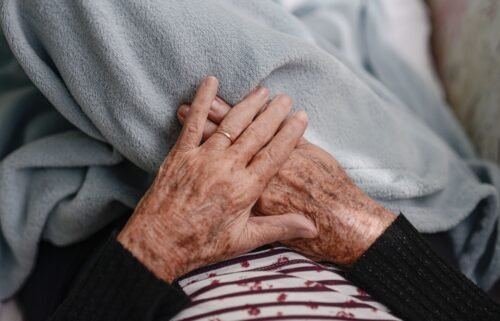FDA investigating risk of secondary cancers after CAR-T therapy to treat cancer

The Food And Drug Administration has received reports of T-cell malignancies in people who received treatment with CAR-T immunotherapies.
(CNN) — The US Food and Drug Administration has launched an investigation into certain treatments for cancer and whether these therapies themselves may be associated with the risk of developing secondary cancers.
The FDA announced Tuesday that it had received reports of T-cell malignancies or cancers, including a type of lymphoma, in people who received treatment with certain chimeric antigen receptor T-cell or CAR-T therapies. In a separate statement to CNN, the FDA said that, as of Tuesday, it had received 19 reports of T-cell malignancy.
T cells, a type of white blood cell, are the backbone of CAR-T therapies, which work by harnessing a patient’s T cells, altering them in a lab so that they will attack cancer cells and then giving those modified T cells back to the patient through an infusion.
“FDA has determined that the risk of T-cell malignancies is applicable to all currently approved BCMA-directed and CD19-directed genetically modified autologous CAR T cell immunotherapies. T-cell malignancies have occurred in patients treated with several products in the class,” the agency said in Tuesday’s announcement.
Currently approved products in that class include Abecma, Breyanzi, Carvykti, Kymriah, Tecartus and Yescarta, according to the announcement. Kymriah, the first CAR-T cancer therapy approved by the FDA for leukemia treatment, was approved in 2017. The initial approvals of these treatments included an FDA requirement for 15-year follow-up studies to assess long-term safety and risk of secondary cancers after treatment.
“Although the overall benefits of these products continue to outweigh their potential risks for their approved uses, FDA is investigating the identified risk of T cell malignancy with serious outcomes, including hospitalization and death, and is evaluating the need for regulatory action,” the agency said in its announcement.
The type of cancer patients who typically take the immunotherapies that the FDA is investigating are those with multiple myeloma, lymphomas and leukemias, said Dr. William Dahut, chief scientific officer for the American Cancer Society, who is not involved in the FDA investigation.
“Leukemias or lymphomas are due to abnormal B cells or T cells. Those driven by abnormal T cells are less common and may be more difficult to treat,” Dahut said in an email. “CAR-T therapy requires genetic modification of T cells. Potentially this could lead to changes in T cells which could evolve into a malignancy.”
The FDA noted in its announcement that the risk of secondary malignancies is already included as a “class warning” in the US prescribing information for these CAR-T therapies, but Tuesday’s announcement describes reports specifically of T-cell malignancy.
“Patients and clinical trial participants receiving treatment with these products should be monitored life-long for new malignancies,” the FDA said. “In the event that a new malignancy occurs following treatment with these products, contact the manufacturer to report the event and obtain instructions on collection of patient samples for testing.”
The announcement also includes a number to call, 1-800-FDA-1088, to report suspected adverse events associated with CAR-T therapies, including T-cell malignancies, or they can be reported at fda.gov/medwatch.
The-CNN-Wire
™ & © 2023 Cable News Network, Inc., a Warner Bros. Discovery Company. All rights reserved.


